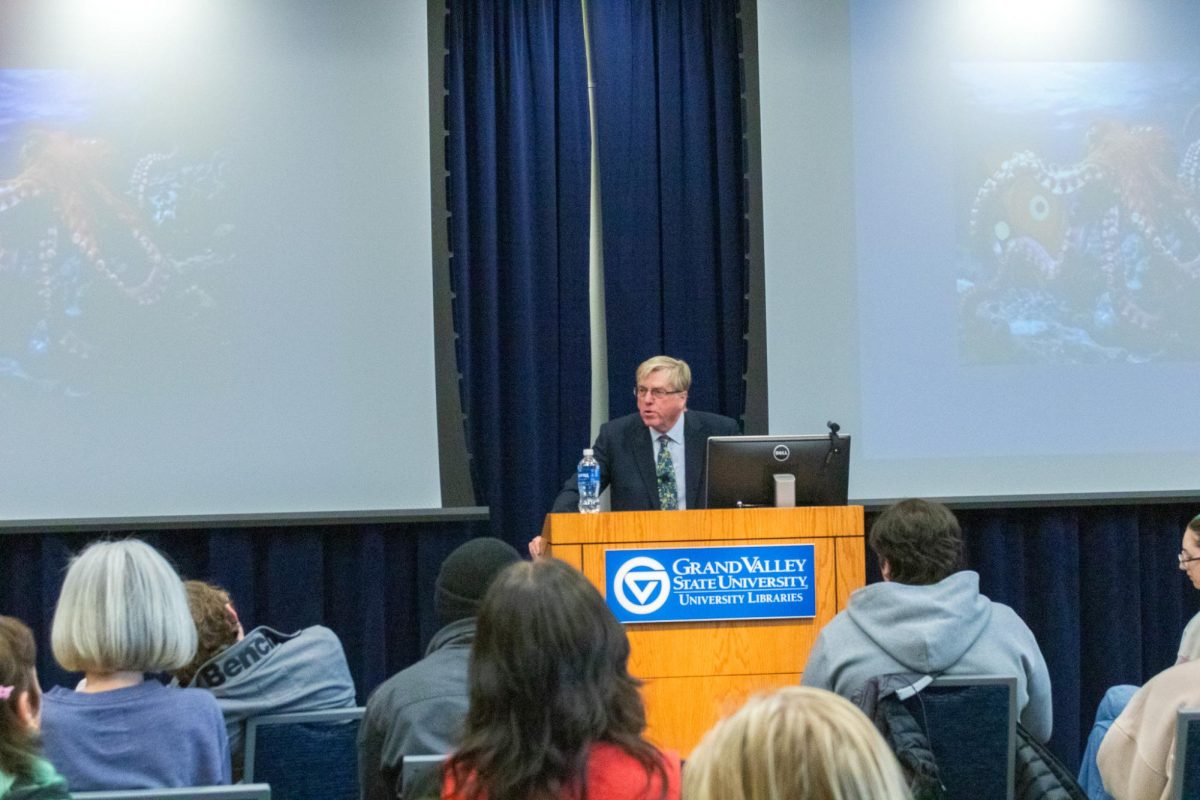Administrative board made to recognize grad student input
Jan 27, 2013
To better address the needs of student organizations on campus, Grand Valley State University recently established the Student Life Fund Administrative Board to review the allocation process of the Student Life Fund. While previously only represented by Student Senate, the Student Life Fund will be split up between Student Senate and the Graduate Student Association starting in fall of 2013.
The purpose of the group is to work with student leaders to ensure student organizations have enough funding for the kinds of programs and services they provide, said Bob Stoll, director of Student Life.
“We’ve created a Student Life Fund Administrative Board, which is faculty, students and staff, to look at the overall student life fund process and to really be an intermediate recommendation board to the budget office as far as funding needs for student organizations,” Stoll said.
As a result, the GSA will continue its responsibilities of disbursing funding for graduate student organizations, but in a more formal manner recognized by the university.
“The way it is set up to happen is this administrative board will allocate money to Student Senate and allocate money to the GSA, then those two bodies using their allocation processes will allocate money to registered student groups and organizations,” said Bart Merkle, dean of students and vice provost of Student Affairs.
Money for student organizations comes from the Student Life Fund, which Stoll and the Office of Student Life oversee. The Student Life Fund, determined by the Budget Committee, is taken out of the university’s general budget.
In the past, the fund was then sent to the Student Senate to be distributed to various councils representing all student organizations on campus.
Over the last two years, though, GVSU has been looking for ways to better incorporate graduate students into that allocation process. The review process by the Student Life Fund Administrative Board will begin in the upcoming weeks, and starting next school year, funding is expected to be distributed to both Student Senate and GSA.
“We’ve got a little over 3,000 graduate students, so finding a better way to get graduate student voice into some of the allocation decisions and the work of committees was something that the university had evolved to a point where we really needed to do that,” Merkle said.
For the 2012-13 school year, graduate student enrollment is at 3,337, which is 13.5 percent of GVSU’s total student population of 24,654. With graduate students being such a large part of the total population, ensuring their concerns are heard is an issue the university is seeking to address.
“The president of GSA and the president of Student Senate are working with the University Academic Senate to try to get some graduate student seats on certain committees to have graduate student voice as a part of those workings,” Merkle said.
Jack Iott, president of Student Senate, said the senate made graduate student life a key priority this year.
“Just as we respond to any student who comes to us with their concerns and needs, we sat down with the GSA student organization to make efforts in adjusting funding and advocacy to ensure Student Senate is adequately representing all students,” Iott said.
Austin Dean, president of GSA, said the process of getting more funding has been long and tedious.
“I am beyond jubilant to see a seven-year project come to fruition,” Dean said. “The fact that it happened during my time as president is a testament to prior officers, my wonderful GSA Executive Board and a highly supportive administration.”
The amount of funding that GSA will receive is not yet determined, but Dean is hoping for an increase from the previous amount of $15,000 per year, which will be used to help develop graduate students’ skills.
Dean said he is happy to see the funding issue finally resolved, but there is still progress to be made.
“The battle for representation has also been going on for years,” Dean said. “We cannot simply ask graduate students to run for positions on Student Senate. We have been attempting to do that for years now, and our representation currently sits at zero.”
There is no rule that prevents graduate students from running for Student Senate, but there are conflicts. The physical schedule and timing of Senate meetings are often problematic with graduate students’ lives, Dean said.
“Our grad students work 50 hours a week, come to class at night, and then go home and see their families,” Dean said. “We are dealing with a different monster all together.”
He also mentioned that undergraduate student concerns are slightly different than graduate student concerns—like health care, graduate assistantships, stipends and dissertations.
Administrators and student leaders are in the process of identifying opportunities where graduate student representation in many campus committees would make sense, Stoll said.
“The challenge will be to determine what the needs are going to be, and then making sure that we can get the kinds of programming and services that our graduate students need,” Stoll said. “I think we’re on a good course now and everybody is moving forward.”






















